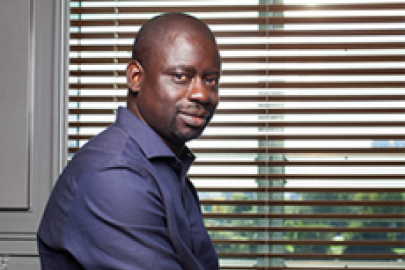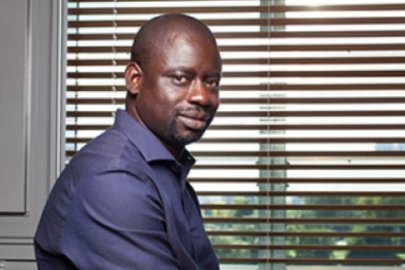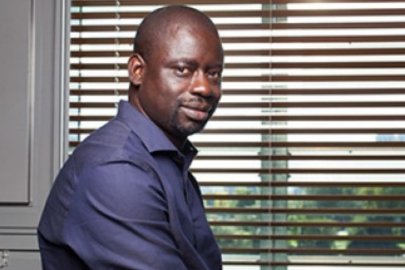Economy, Gaston Berger University, Senegal

Octobre 2017 à Juin 2018
Felwine Sarr is a Senegalese scholar and writer born in 1972 in Niodior, in the Saloum islands. He attends high school in Senegal before studying economics at the University of Orleans where he obtains a doctorate in Economics in 2006. Full professor and agregation holder, he teaches at the University Gaston Berger of Saint-Louis since 2007. His lectures and academic researches focus on economic policies, development economy, econometrics, epistemology and history of religious ideas. In 2010, he is awarded the prize Abdoulaye Fadiga for research in Economics. In 2011, he becomes dean of the Economics and Management faculty of the University Gaston Berger of Saint-Louis, and head of the new faculty of Civilizations, Religions, Arts and Communication (CRAC) of the same university. He is also a writer and has published several novels and essays. As a musician, he has published three albums thus far: Civilisation ou Barbarie (2000), Les Mots du Récits (2005) and Bassai (2007). With the writers Boubacar Boris Diop and Nafissatou Dia, he cofounded the publishing house Jimsaan. Felwine Sarr is also editor of the review Journal of African Transformation (CODESRIA-UNECA). In 2016, he organized with Achille Mbembé in Dakar and Saint-Louis, the Ateliers de la pensée, which gathers African and diasporic intellectuals and artists to think around the transformations of the contemporary world.
Writing Humanities from an African Perspective
The research project is based on the issue of the writing of African humanities. It starts from the premise of the diversity of approaches to reality depending on civilizations and eras, the plurality of ways of knowing, as well as gnosiological and epistemological relativity. It proposes to rethink the plurality of the journeys of human thinking starting from the idea of the principle of equality of the different schools of thought, while acknowledging their incommensurability. This leads to envisaging these different schools of thought from their horizons and the configurations of the imaginable which they propose, like unique journeys of the mind which have developed concurrently, shaped by the cultures from which they originate.
Thinking about these questions in an African context calls for an epistemic shift. It is necessary to incorporate the complexity of African social structures and embrace them in their cultural and historical distinctiveness. This requires a change of position within the fields of constituted knowledge and recovery; an act of thinking which pays particular attention to its archaeological setting and actual trends in the societies being examined. But more fundamentally, it is a question of acquiring more in-depth knowledge of African societies and cultures, based on their own gnosiological criteria. To achieve this, it is necessary to adopt other modes of understanding reality, besides the scientific knowledge that has been constructed thus far. The exploration of the relatively unfamiliar territories of African ontomythologies and epistemogonies allows a more open-minded approach to various types of knowledge, thus keeping African societies alive.
[This research project will be updated soon.]
SARR, Felwine, Habiter le Monde, Montréal, Mémoire d’encrier, 2017.
SARR, Felwine, Ishindenshin, Montréal, Mémoire d’encrier, 2017.
SARR, Felwine et MBEMBE, Achille (co-dir.), Ecrire l’Afrique-Monde, Paris, Philippe Rey, 2017.
SARR, Felwine, Afrotopia, Paris, Philippe Rey, 2016.
SARR, Felwine, "Economics and Culture", Handbook of Economics and Africa, Oxford, Oxford University Press, 2015.
SARR, Felwine, Méditations Africaines, Montréal, Mémoire d’encrier, 2012.
SARR, Felwine, 105 rue Carnot, Montréal, Mémoire d’encrier, 2011.
SARR, Felwine, Dahij, Paris, Gallimard, "L’arpenteur", 2009.



